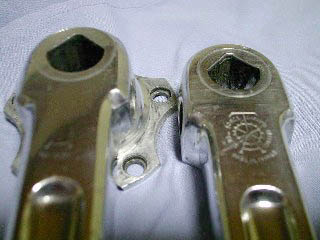Oregon state legislators are debating the idea of levying a tax on new bicycle purchases.
Now, my younger self--the teenage Ayn Rand acolyte--would have winced at the idea. But my older, more radical self--what I am today--can see the need for civil rights legislation and--egad!--even the need for a single-payer healthcare system. Still, I'm not sure how I feel about a tax on bicycle sales.
According to lawmakers, the money raised would be used to pay for improvements to the state's bicycle infrastructure, commonly regarded as among the best in the USA. That, on its face, sounds both good and fair. Or does it?
State Senator Lee Beyer (D) is one of the authors of the proposal. He says he helped to create it in response to a common refrain among his colleagues: that bicycle owners "ought to contribute to the system." Sen. Beyer thinks that's a good idea, except for one thing. He says that this idea ignores this fact about cyclists in The Beaver State: "most of them also own a car". That means, of course, that they are already paying taxes and registration fees which, ostensibly, help to improve and maintain the state's transportation system--of which the "bicycle infrastructure" is a part. At least, that would be, in effect, its status if such a proposal becomes law.
That leads me to a question: What, exactly, do they mean by "bicycle infrastructure"? Are they talking about bike lanes and paths? If so, will engineers and planners who are actually cyclists be recruited to conceive and build them? Or, is the legislature thinking about bicycle education classes? For whom--cyclists? drivers? kids?
Pardon my cynicism, but I have seen too many poorly-conceived, -built and -maintained bike lanes, and have encountered too much ignorance about laws and policies--let alone the actual experience of cycling--among law makers, law enforcement officials, planners and members of the media to have much faith in any government's intention or ability (at least the way things are currently done) to make their jurisdictions more "bicycle friendly".
Also--again, please pardon my cynicism--I don't believe (until I see otherwise) that the tax money will actually go to "improving or maintaining bicycle infrastructure" or making a place more "bicycle friendly", whatever those things mean. I have seen too many instances in which money that a government takes from its people for some purpose doesn't go to that purpose. One of the best examples are state lottery systems, which were supposed to supplement budgets for education and other purposes. Instead, money raised from state-sponsored gambling has been used in lieu of money that had been raised through other taxes and budgeted.
Then, of course, there is the matter of how this will affect bike shop owners. At one point in my life, I had the opportunity to open a bike shop: A couple of people would have provided the money. Working in a couple of bike shops convinced me not to do it: My would-be investors, who made money in other industries, were astounded that profit margins were as small as they were--and that the profits were even smaller on high-end bikes than on cheaper bikes.
(There's an old joke that goes something like this: Go into the bike business, and you can end up with a small fortune. How? Start with a big one.)
The tax proposed in Oregon would be levied on bikes costing $500 or more. These days, that amount of money hardly buys what most of us would consider a "high performance" or "high end", let alone "luxury", machine. If you are going to commute every day and want something reliable--let alone something you might enjoy riding on your day off--you need to spend at least that much, at least if you are buying a new bike.
But even if that tax is paid by cyclists lower on the cost and income scale than lawmakers intended, it will still affect a fairly small number of bicycles. One of the factors that keeps automobile sales as high as they are is that many drivers replace their cars every few years, whether or not they need to. While there are cyclists who want to have whatever they saw in the latest edition of a bicycle lifestyle cycling magazine, most cyclists tend to stick with a bike that serves them well for a long time. We replace a tire here, a chain there, maybe a more major component after a few years (or more), but a bike that isn't crashed can be ridden for decades with relatively little care.
So, in brief, you have to wonder just how much money a tax on new bicycles costing $500 or more would actually raise. And you should be very, very skeptical about what is done with that money--especially when terms like "bicycle friendly" and "bicycle infrastructure" are tossed around.
















